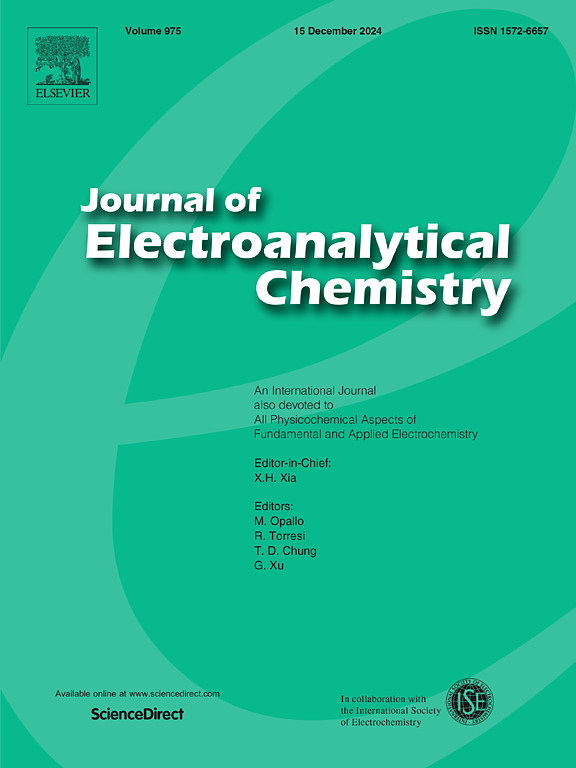Recent advances in surface oxophilicity modification of catalyst for promoting electrocatalytic alkaline hydrogen oxidation reaction
IF 4.1
3区 化学
Q1 CHEMISTRY, ANALYTICAL
引用次数: 0
Abstract
Improving the kinetics of alkaline hydrogen oxidation reaction (HOR) is the key point for developing anion-exchange membrane fuel cells. Surface oxophilicity modification of catalysts has been demonstrated to be an effective strategy for substantially accelerating the kinetics of alkaline HOR, while the mechanism of HOR and the influences of surface oxophilicity modification on the performance of catalysts is still unclear and under debate. Against this background, this review starts by discussing the HOR mechanism and the prevailing theories, including the hydrogen binding energy (HBE), bifunctional and some other theories. Next, the effects of surface oxophilicity on HOR activity are also emphasized, which include the regulation of HBE and hydroxyl binding energy (OHBE), weakening the binding strength of CO, and improving the antioxidation capability. Moreover, the applications of various electrocatalysts with high surface oxophilicity toward electrocatalytic HOR are also manifested. Lastly, the remaining controversies about the modification of surface oxophilicity and alkaline HOR mechanisms as well as the possible directions of this field are also outlined.

催化剂表面亲氧性改性促进电催化碱性氢氧化反应的研究进展
提高碱性氢氧化反应动力学是发展阴离子交换膜燃料电池的关键。催化剂的表面亲氧性改性已被证明是大大加快碱性HOR动力学的有效策略,但HOR的机理和表面亲氧性改性对催化剂性能的影响仍不清楚和存在争议。在此背景下,本文首先从氢结合能(HBE)理论、双官能团理论和其他一些理论等方面对其机理进行了综述。其次,强调了表面亲氧性对HOR活性的影响,包括调节HBE和羟基结合能(OHBE),减弱CO的结合强度,提高抗氧化能力。此外,还介绍了各种具有高表面亲氧性的电催化剂在电催化HOR中的应用。最后,对表面亲氧性和碱性HOR机理的改性存在的争议以及该领域可能的发展方向进行了概述。
本文章由计算机程序翻译,如有差异,请以英文原文为准。
求助全文
约1分钟内获得全文
求助全文
来源期刊
CiteScore
7.80
自引率
6.70%
发文量
912
审稿时长
2.4 months
期刊介绍:
The Journal of Electroanalytical Chemistry is the foremost international journal devoted to the interdisciplinary subject of electrochemistry in all its aspects, theoretical as well as applied.
Electrochemistry is a wide ranging area that is in a state of continuous evolution. Rather than compiling a long list of topics covered by the Journal, the editors would like to draw particular attention to the key issues of novelty, topicality and quality. Papers should present new and interesting electrochemical science in a way that is accessible to the reader. The presentation and discussion should be at a level that is consistent with the international status of the Journal. Reports describing the application of well-established techniques to problems that are essentially technical will not be accepted. Similarly, papers that report observations but fail to provide adequate interpretation will be rejected by the Editors. Papers dealing with technical electrochemistry should be submitted to other specialist journals unless the authors can show that their work provides substantially new insights into electrochemical processes.

 求助内容:
求助内容: 应助结果提醒方式:
应助结果提醒方式:


